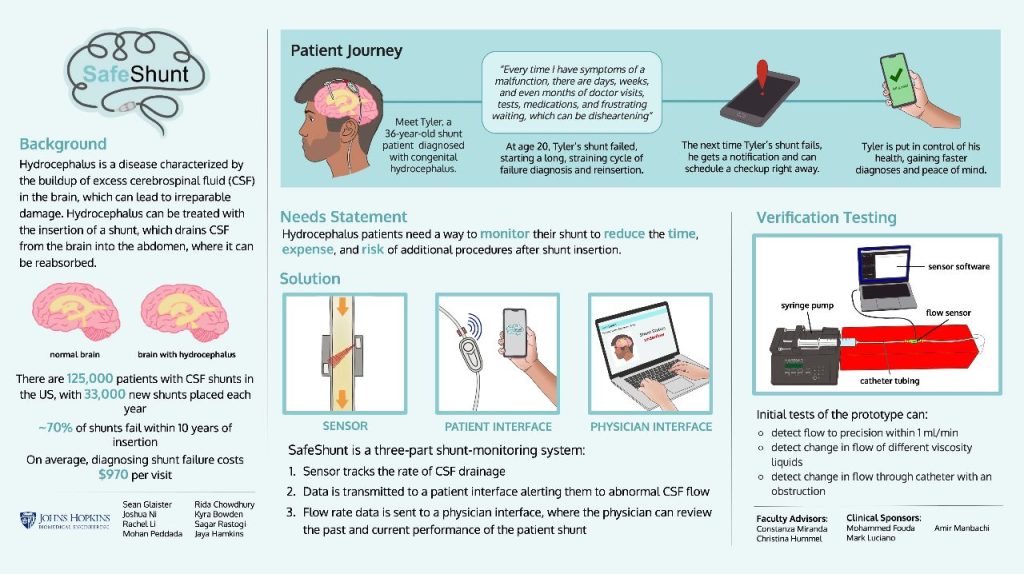SafeShunt: Detecting failure of cerebrospinal fluid shunts in patients with Hydrocephalus
Program:
Biomedical Engineering
Project Description:
The main treatment for hydrocephalus, a disease characterized by an abnormal buildup of Cerebrospinal Fluid (CSF) in the brain, is to insert a shunt to divert CSF elsewhere in the body. However, shunts fail at an alarmingly high rate and there is no current standard for patients to monitor the functioning status of their shunt. Therefore, a solution system involving three components was built to bridge this gap: a sensor to detect abnormal CSF flow-rate indicative of shunt failure, an interface to notify patients, and an interface to provide data for physicians to make a faster and more reliable diagnosis. This system was evaluated with two tests to prove the ability to detect shunt failure with a flow-rate sensor and the ability to transmit data from the sensor to the patient interface via RFID communication. Physician and patient interviews were conducted to affirm the value of the system in diagnosing shunt failure and to prove its integrability into the patient’s lifestyle. Overall, the sensor successfully detected changes in flow when an obstruction was placed within shunt tubing and when fluid viscosity changed, indicating its potential to predict shunt failure. In addition, data was transmitted to an external application through RFID, indicating the potential for the sensor to transmit flow data to the patient interface. The designed system’s ability to pass these tests demonstrates its capability to serve as an impactful solution to a currently unaddressed problem within the care of patients with CSF shunts.
Team Members
-
[foreach 357]
-
[if 397 not_equal=””][/if 397][395]
[/foreach 357]
Project Mentors, Sponsors, and Partners
-
Mohammed Fouda, MD (Clinical Mentor)
-
Mark Luciano, MD, PhD (Committee Member)
-
Amir Manbachi, PhD (Committee Member)
-
Christina Hummel (TA)
Course Faculty
-
[foreach 429]
-
[if 433 not_equal=””][/if 433][431]
[/foreach 429]
